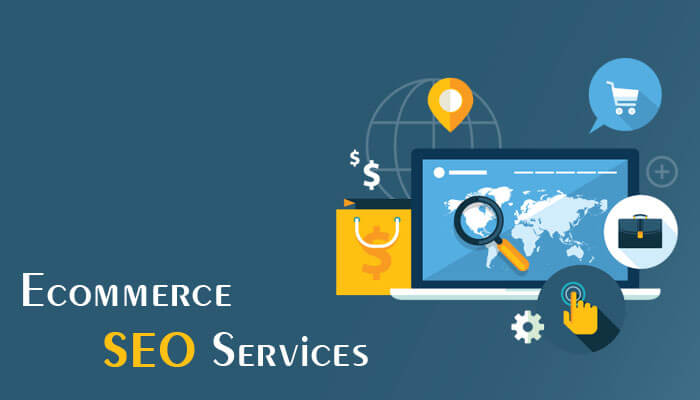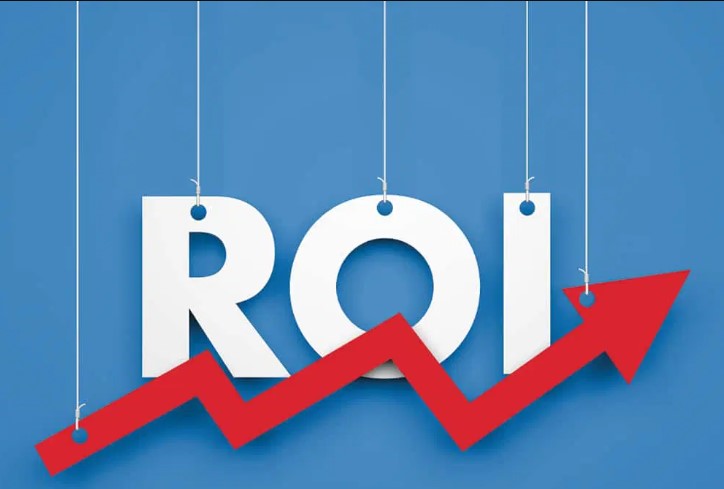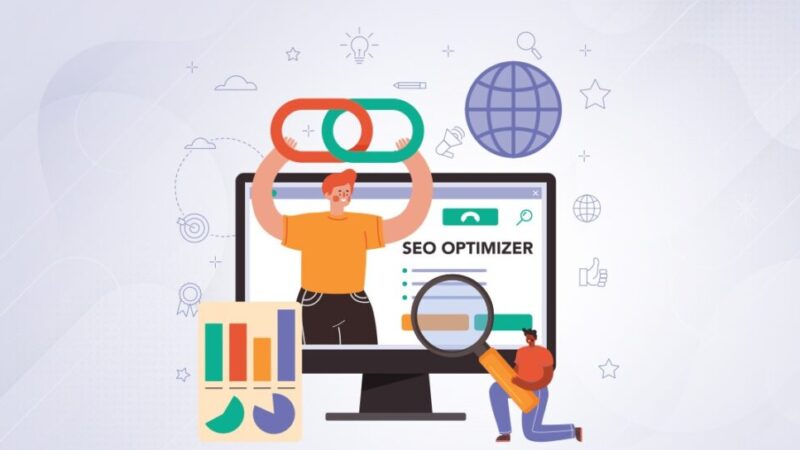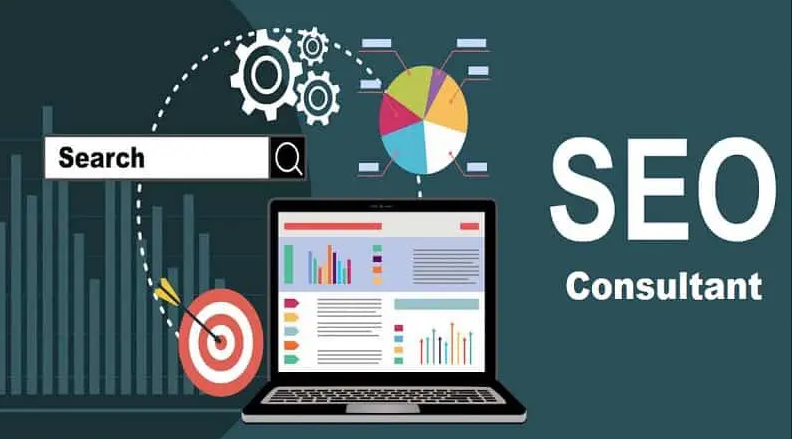ROI with SEO for Ecommerce Businesses

ROI, or return on investment, is a crucial metric that determines the profitability of a business’s investment efforts. It represents the gain or loss generated on an investment, relative to the amount invested. SEO, on the other hand, is a process of optimizing a website to improve its visibility and ranking on search engine result pages. By strategically implementing SEO techniques, Ecommerce SEO ROI businesses can increase their online visibility, attract more organic traffic, and generate higher conversions.
Table of Contents
- The Importance of SEO for Ecommerce Businesses
- Key SEO Strategies for Ecommerce Websites
- Measuring ROI with SEO
- Enhancing ROI with Conversion Rate Optimization (CRO)
- Best Practices for Maximizing ROI with SEO
- Conclusion
- FAQs
- 1. How long does it take to see results from SEO for ecommerce businesses?
- 2. Is SEO the only marketing strategy ecommerce businesses need?
- 3. Can I do SEO for my ecommerce website myself, or should I hire a professional?
- 4. How can I track the ROI of my SEO efforts?
- 5. Are there any risks involved in SEO for ecommerce businesses?
The Importance of SEO for Ecommerce Businesses
In the highly competitive ecommerce landscape, standing out from the crowd is vital for success. SEO plays a pivotal role in helping businesses achieve this by improving their online presence and visibility. When a potential customer searches for a product or service related to their business, appearing on the top positions of the search results can significantly increase the chances of attracting organic traffic. This targeted traffic is more likely to convert into paying customers, leading to higher sales and revenue.
Key SEO Strategies for Ecommerce Websites
Keyword Research and Optimization:
Thorough keyword research helps identify the relevant keywords and phrases that potential customers are using to search for products. By optimizing website content and product descriptions with these keywords, Ecommerce SEO ROI businesses can improve their search engine rankings and visibility.
Optimized Product Pages:
Each product page should have a unique and descriptive title tag, meta description, and URL. Including high-quality product images, detailed descriptions, customer reviews, and clear call-to-action buttons can enhance the user experience and improve search engine rankings.
A well-structured website with clear navigation helps search engines crawl and index pages effectively. Creating categories, subcategories, and using breadcrumb navigation can improve user experience and make it easier for search engines to understand the website’s content.
Mobile Optimization:
With the increasing use of smartphones, having a mobile-friendly website is essential. Responsive design, fast page loading speed, and easy navigation on mobile devices contribute to a positive user experience and improve search engine rankings.
Measuring ROI with SEO
To measure the ROI of SEO efforts, ecommerce businesses need to track and analyze relevant metrics. These include organic traffic, keyword rankings, conversion rates, average order value, and revenue generated from organic search. By regularly monitoring these metrics and comparing them to the initial investment in SEO, businesses can evaluate the effectiveness of their and make data-driven decisions for optimization.

Enhancing ROI with Conversion Rate Optimization (CRO)
While SEO helps drive organic traffic to ecommerce websites, conversion rate optimization (CRO) focuses on improving the percentage of visitors who complete desired actions, such as making a purchase or subscribing to a newsletter. By combining SEO with CRO techniques, ecommerce businesses can enhance their ROI by maximizing both traffic and conversions.
Clear and Compelling Call-to-Action (CTA):
Placing persuasive CTAs strategically on product pages, landing pages, and throughout the website can encourage visitors to take the desired action. Using engaging language and highlighting the benefits can increase conversion rates.
Simplified Checkout Process:
Streamlining the checkout process by minimizing steps and eliminating unnecessary form fields can reduce cart abandonment rates. Offering guest checkout options and multiple payment methods can also improve the user experience and increase conversions.
A/B Testing:
Conducting A/B tests allows ecommerce businesses to experiment with different variations of web pages, CTAs, layouts, and designs to identify the most effective elements for driving conversions. This data-driven approach helps optimize the website for higher conversion rates.
Social Proof:
Displaying customer reviews, testimonials, ratings, and trust badges can instill confidence in potential buyers and alleviate any concerns they may have. Social proof acts as a powerful persuasion tool and can positively impact conversion rates.
Best Practices for Maximizing ROI with SEO
To achieve maximum ROI with SEO for ecommerce businesses, it is important to follow these best practices:
Create Unique and Engaging Content:
Producing high-quality and original content that is relevant to your target audience not only improves search engine rankings but also enhances user engagement. Content such as informative blog posts, buying guides, and product reviews can attract organic traffic and drive conversions.
Optimize Metadata and On-Page Elements:
Title tags, meta descriptions, header tags, and alt tags should be optimized with relevant keywords to improve organic visibility. Creating descriptive and engaging snippets can also increase click-through rates from search engine results pages.
Build High-Quality Backlinks:
Acquiring backlinks from authoritative and relevant websites is an essential part of off-page SEO. Building a strong backlink profile helps establish credibility and signals to search engines that your website is trustworthy and valuable.
Monitor and Adapt to Algorithm Changes:
Search engine algorithms are constantly evolving, and it is crucial to stay updated with the latest changes. Regularly monitoring algorithm updates and adapting your SEO strategies accordingly can help maintain and improve your search engine rankings.
The Future of SEO in Ecommerce
As technology continues to advance, the future of SEO in ecommerce looks promising. Here are some trends that are expected to shape the future:
Voice Search Optimization:
With the rise of voice assistants and smart devices, optimizing content for voice search queries will become increasingly important. Ecommerce businesses should focus on conversational keywords and long-tail phrases to cater to voice search users.
Mobile-First Indexing:
As mobile usage surpasses desktop, search engines prioritize mobile-friendly websites. Ecommerce businesses must ensure their websites are fully optimized for mobile devices to maintain and improve search engine rankings.
Artificial Intelligence (AI) and Machine Learning:
AI-powered algorithms can analyze vast amounts of data, understand user behavior, and deliver personalized search results. Ecommerce businesses can leverage AI and machine learning to gain insights, optimize their SEO strategies, and provide a tailored user experience.
Conclusion
In conclusion, investing in SEO can yield significant ROI for ecommerce businesses. By implementing effective SEO strategies, optimizing conversions through CRO techniques, and staying updated with the latest trends, businesses can increase organic traffic, improve search engine rankings, and ultimately drive higher sales and revenue.
FAQs
1. How long does it take to see results from SEO for ecommerce businesses?
The timeline for seeing SEO results can vary depending on various factors, such as the competitiveness of the industry, the current state of the website, and the SEO efforts implemented. Generally, it takes time for search engines to crawl and index the website, and for the optimizations to take effect. It can take several months to see significant improvements in organic rankings and traffic. However, consistent and strategic SEO efforts can lead to long-term and sustainable results.
2. Is SEO the only marketing strategy ecommerce businesses need?
While SEO is a vital component of a comprehensive marketing SEO strategy for Ecommerce businesses, it is not the only strategy to rely on. It is important to adopt a multi-channel approach that includes other marketing tactics such as social media marketing, paid advertising, email marketing, and content marketing. Integrating SEO with other strategies can amplify the results and increase the overall effectiveness of the marketing efforts.
3. Can I do SEO for my ecommerce website myself, or should I hire a professional?
While it is possible to implement basic SEO techniques yourself, hiring a professional SEO agency or specialist can provide several advantages. SEO professionals have the expertise, experience, and tools to conduct in-depth keyword research, perform technical optimizations, monitor performance, and adapt strategies to the ever-changing SEO landscape. They can provide valuable insights, save time, and ensure that your website is optimized effectively for maximum ROI.
4. How can I track the ROI of my SEO efforts?
Tracking the ROI of SEO involves monitoring and analyzing various metrics. Key metrics to consider include organic traffic, keyword rankings, conversion rates, average order value, and revenue generated from organic search. Setting up Google Analytics and utilizing other SEO tracking tools can help gather the necessary data. By comparing these metrics to the initial investment in SEO, you can assess the profitability and success of your SEO campaigns.
5. Are there any risks involved in SEO for ecommerce businesses?
While SEO can provide significant benefits, there are some risks to be aware of. Engaging in unethical or black hat SEO practices can lead to penalties from search engines, resulting in a drop in rankings or even removal from search results. It is important to follow SEO best practices, avoid spammy tactics, and focus on providing value to users. Staying informed about algorithm updates and industry changes can help mitigate risks and ensure long-term success.






